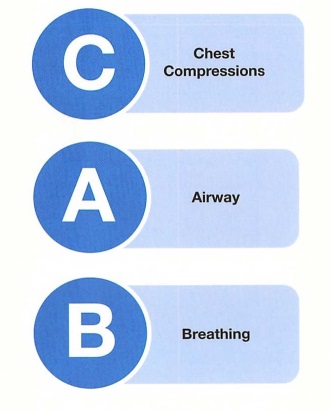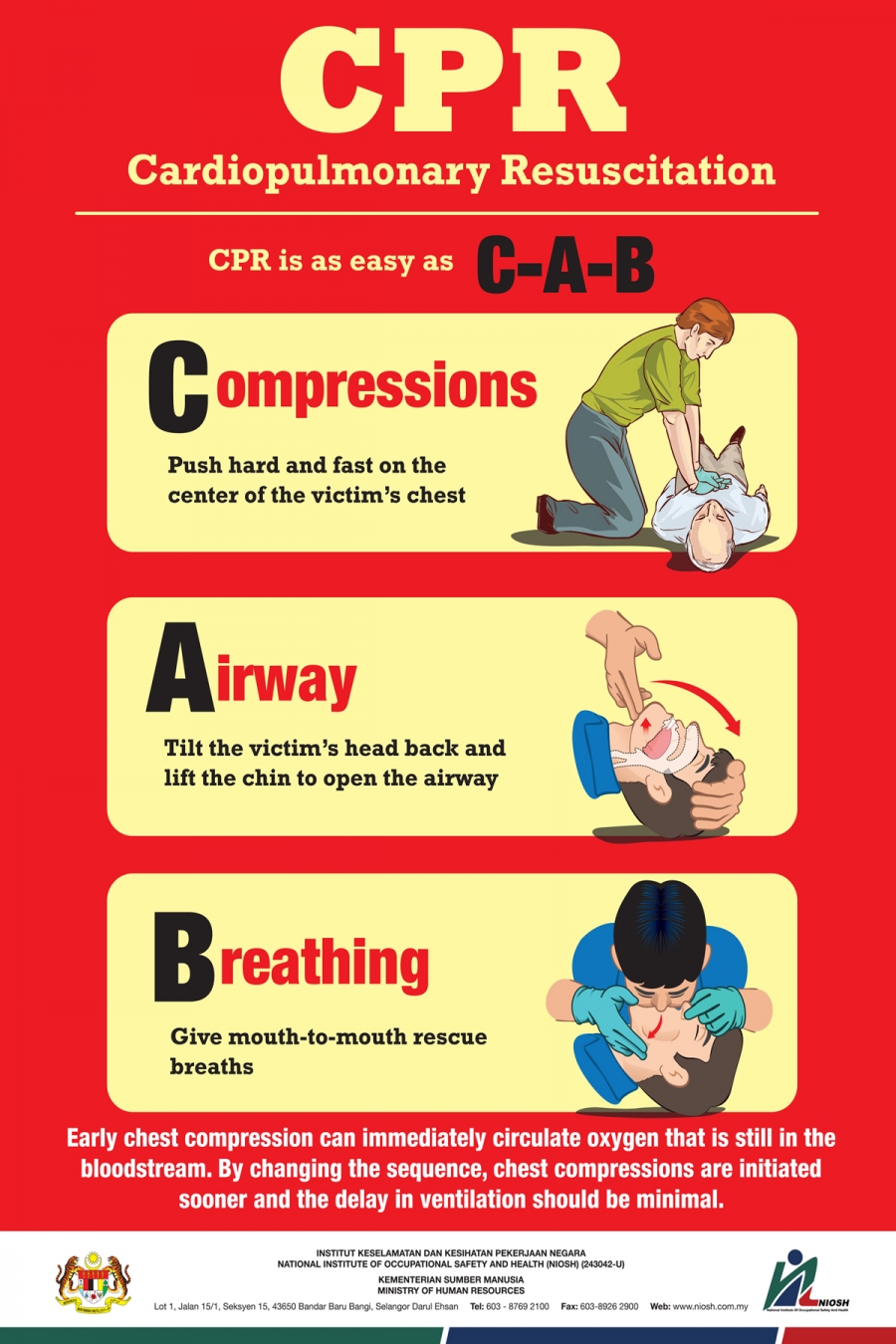

The difference between doing something and doing nothing could be someone's life.
#CAB IN CPR STANDS FOR HOW TO#
Find training or a course near you.If you're afraid to do CPR or unsure how to perform CPR correctly, know that it's always better to try than to do nothing at all. If you want to gain confidence in performing CPR, consider taking a class or attending a training.

Learn more about the hands-only method of CPR from AHA. Continue giving CPR until medical professionals arrive or until a person with formal CPR training can take over.The American Heart Association (AHA) recommends timing your pushes to the beat of the song “Stayin’ Alive.” This method of CPR is called “hands-only” and does not involve breathing into the person’s mouth. Let the chest come back up to its normal position after each push. Give CPR. Push down hard and fast in the center of the chest at a rate of 100 to 120 pushes a minute.
#CAB IN CPR STANDS FOR PORTABLE#
AEDs are portable machines that can electrically shock the heart and cause it to start beating again.

Women may also be less likely to receive CPR if they experience cardiac arrest in a public place. 2Ĭertain people, including people in low-income, Black, and Hispanic neighborhoods, are less likely to receive CPR from bystanders than people in high-income white neighborhoods. If it is performed in the first few minutes of cardiac arrest, CPR can double or triple a person’s chance of survival. CPR Saves Lives.Ĭurrently, about 9 in 10 people who have cardiac arrest outside the hospital die. Learn some surprising facts about CPR, cardiac arrest, and how you can be prepared to help save a life. Heart attack increases the risk for going into cardiac arrest. This person does not need CPR-but they do need to get to the hospital right away. A person having a heart attack is still talking and breathing.

A heart attack happens when blood flow to the heart is blocked. These compressions help keep blood flowing throughout the body.Ĭardiac arrest is not the same as a heart attack. 1 CPR uses chest compressions to mimic how the heart pumps. Death can happen in minutes without treatment. During cardiac arrest, the heart cannot pump blood to the rest of the body, including the brain and lungs. When a person’s heart stops beating, they are in cardiac arrest. What is CPR, and when should I use it?Ĭardiopulmonary resuscitation (CPR) is an emergency procedure that can help save a person’s life if their breathing or heart stops. Someone whose heart has stopped beating is in cardiac arrest and needs CPR. Cardiac arrest is not the same as a heart attack.


 0 kommentar(er)
0 kommentar(er)
